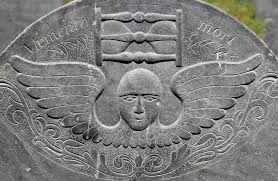
自分もいつか死ぬということは、できれば考えたくない。というのが、現代に生きる
私たちの一般的な感情でしょう。しかし、古くより「メメントモリ(memento mori)
=自分がいつか必ず死ぬことを忘れるな」という格言があるように、日頃から自分の
死を意識しているかいないかで、人生は大きく変わってくると言うのです。この問題に
関して、おそらく世界で最も深い見識を持つと思われる人物のひとり、ダライ・ラマの
言葉に耳を傾けてみましょう。
No matter how long we live, at most around one hundred years, eventually we must die,
losing this valuable human life. And this could happen at any time. No matter how much
prosperity we enjoy, this life will disintegrate. No amount of wealth can buy us
an extension. On the day of your death, nothing you have accumulated can help;
we have to leave it behind. In this respect, the death of a rich person and the death of
a wild animal are alike.
どれほど長生きしてもせいぜい百歳くらいで、誰もがいずれ死なねばならず、かけがえ
のないこの人生を失います。しかも、その日がいつ来てもおかしくはありません。
どれほどの繁栄を極めようと、この人生は必ず崩壊します。どれだけ富を蓄えようと、
寿命を延ばすことはできません。死を迎えた日には、蓄えてきたものなど何の役にも
立たず、あとに残していくほかありません。この点において、金持ちの死も野生動物の
死も、みな同じなのです。
Even though there is no certainty that you will die tonight, when you cultivate
an awareness of death, you appreciate that you could die tonight. With this attitude,
if there is something you can do that will help both in the present and the future, you will
give it precedence over something that will help in just a superficial way. Futhermore,
by being uncertain about when death will come, you will refrain from doing something
that will harm both your present and your future.
あなたが今夜死ぬかどうかは誰にもわかりませんが、死に対する認識が深まれば、
「自分は、今夜死ぬかもしれない」と認識できるようになります。こうした姿勢を
持てば、現在や未来のためになることで、何かできることがあれば、本質的でない事柄
よりも優先して行なうようになります。また、「いつ死が訪れるかわからない」と
考えることで、自分の現在や未来を脅かすような行動は慎むようになるでしょう。
It is crucial to be mindful of impermanence――to contemplate that you will not remain
long in this life. If you are not aware of death, you will fail to take advantage of this
special human life that you have already attained. Contemplation of the imminence of
death brings more energy to life, and if you accept that death is part of life, then when
it actually does come, you will face it more easily.
世の「無常」を心に留めておくことは、とても重要です。つまり、「自分は永遠に
この世にいるわけではない」と、意識しておくことが大切なのです。死を意識
しなければ、せっかく手に入れたこの特別な人生を活かすこともできないでしょう。
死が迫っていることを意識すれば、人生にさらなるエネルギーがもたらされます。
そして、死も人生の一部であることを受け入れれば、本当に死が訪れたとき、もっと
楽な形で向き合えるでしょう。
When people know deep inside that death will come but deliberately avoid thinking about
it, that is counterproductive. The same is true when old age is not accepted as part of life
but is seen as undesirable, and therefore deliberately avoided as a consideration.
This leads to being mentally unprepared; then, when old age inevitably occurs, it is very
difficult.
死が訪れることを心の底では知っているのに、あえて考えないようにするのは、生産的
ではありません。年をとることについても、同じことがいえます。「年をとるのも人生
の一部」と受け入れるのではなく、望ましくないものと見なして、あえて考えない
ようにする人たちもいます。すると心構えができていないので、老いを迎える段に
なって、とてもつらい思いをすることになります。
Accepting old age and death as part of life is crucial to making life meaningful. Feeling
that death is remote or impossible leads to greediness and more trouble――sometimes
even to doing deliberate harm to others.
老いや死を人生の一部として受け入れることは、有意義な人生に欠かせません。死を
遠いもの、あり得ないものと感じることが、貪欲さや、さらなるトラブルを引き起こす
のです。(時には、他者にわざと害を及ぼすことさえあります)。
If you do not wait until the end for the knowledge that you will die to sink in, if you
realistically assess your situation now, you will not be overwhelmed by superficial,
temporary goals. You will not neglect what matters in the long run.
「自分はいつか死ぬ」という知識を、最期の瞬間まで待ってからようやく受け入れる
のではなく、今、自分の状況をありのままに判断すれば、本質的でない目先の目標に
振り回されなくなるでしょう。また、長期的に見て大事なことをおろそかにしなく
なります。
It is better to decide from the very beginning that you will die, and then investigate
what is worthwhile. If you keep in mind how quickly this life disappears, you will value
your time and do what is most valuable.
最初から「自分はいつか死ぬ」と考えて、やる価値のあることは何かを検討するに
越したことはありません。人生がどれほど足早に終わってしまうかを心に刻んで
おけば、時間を大切にし、もっと価値のあることをするはずです。
With a strong sense of the imminence of death, you will feel the need to engage
in spiritual practice, improving your mind instead of wasting your time on various
distractions, ranging from eating and drinking to endless talk about sports, war, romance,
and gossip. Try to keep in mind this famous Indian saying, “A tomorrow when you are
gone is undoubtedly coming.”
死が迫っていることを強く意識すれば、精神の修行に取り組む必要性を感じ、心の向上
に努めるでしょう。食べたり飲んだり、スポーツや戦争、恋愛やうわさ話をネタに、
延々とおしゃべりするような気晴らしに、時間を浪費することはなくなります。インド
の有名なことわざを心に刻んでおきましょう。それは、「あなたのいない明日が、
いずれ必ずやってくる」というものです。

How To Be Compassionate: A Handbook for Creating Inner Peace and a Happier World
- 作者: Dalai Lama
- 出版社/メーカー: Rider
- 発売日: 2012/09/06
- メディア: ペーパーバック
- この商品を含むブログを見る

How to Be Compassionate: A Handbook for Creating Inner Peace and a Happier World
- 作者: His Holiness the Dalai Lama,Jeffrey Hopkins Ph.D.
- 出版社/メーカー: Simon & Schuster Audio
- 発売日: 2011/03/01
- メディア: CD
- この商品を含むブログを見る
■プライバシー・ポリシー
当ブログは、Amazon.co.jpを宣伝しリンクすることによってサイトが紹介料を獲得
できる手段を提供することを目的に設定されたアフィリエイト宣伝プログラムである、
Amazonアソシエイト・プログラムの参加者です。このプログラムにおいて、
第三者がコンテンツおよび宣伝を提供し、ユーザーからの情報を収集し、訪問者の
ブラウザーにクッキーを設定することがあります。プログラムにおいて情報の
扱いについてはAmazon.co.jpプライバシー規約をご確認ください。
Amazon.co.jp ヘルプ: Amazon.co.jp プライバシー規約
